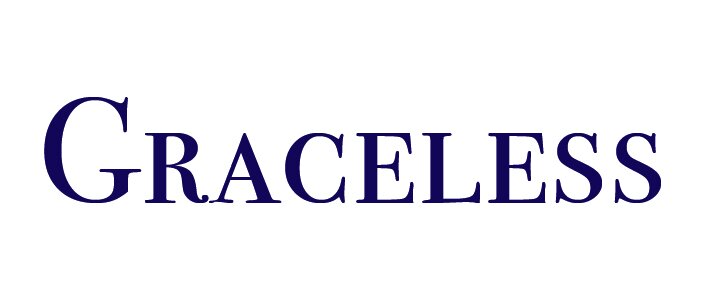The Myth of Deviant Sexuality
What is the right way to have a relationship?For some, the answer is simple: a cis man and cis woman, married or exclusively dating. The idea that this model—one that is straight, cis, and monogamous—is superior to any other type of relationship is the foundation of heteronormativity in our culture. There’s no reason why this type of social bond should be valued over any other, but therein lies the myth of cisgender-heterosexual superiority.Sex shaming and relationship shaming are pervasive, ugly things. Chances are, even if you don’t want to be judgmental, you still have some ideas about how relationships should be conducted. Do you think it’s better if couples are exclusive? Do you think triads are inherently unmanageable? Do you find it distasteful if someone is in a committed relationship but also has a lot of external sex, whether for pay or pleasure? Do you think people who have casual sex are disrespecting themselves?These thoughts result from the myths of relationship superiority perpetuated within our heteronormative culture.A Facebook post comes across my feed, stating that sex and love are not inherently related even if many people experience them together. As a queer person with multiple intersecting identities, this reflects my reality. I’m a demisexual lesbian. Being on the asexual spectrum defines my sexuality, introducing nuance into how I experience my attraction. I realize that this isn’t something most people have to think about, so I’m not surprised when crawling out of the woodwork come the naysayers.“Sex and love are mutually inclusive,” they say. “It’s natural to want only one partner, and this post shames people who can’t have sex without catching feelings.” One person even likens it to gaslighting.I try not to get defensive, and I mostly do not succeed. It’s hurtful to hear people who are in the majority arguing that their way is the natural way and everyone else is deviant. I get enough of that word from the “sexual sin” crowd, so coming across it in the leftist community is pretty stressful.Unpacking heteronormativity is everyone’s responsibility. People who are polyamorous, LGBTQ+, or not romantically inclined shouldn’t have to beg for humanity or respect from the masses—and that’s not even counting the fact that your regular vanilla straight people would probably benefit from some sexual liberation, as well.So, where to start? The myth of biological sex is a good place. Word on the street is that people are anatomically male or female, and that gender is another thing entirely. This model enables a lot of transphobia, and it’s not even scientific. Sex exists on a spectrum, not a binary. For every redhead you know, you might also know an intersex person. You might pass someone with chromosomal differences on the street and not waste half a second thinking about it (nor should you).In order to remove the stigma against people who enjoy having a lot of sex, society needs to go back to seeing sex as a social activity rather than an explicitly romantic one. Looking at the sexual behavior of our closest genetic relatives and other highly intelligent animals, we see hundreds of different ways sex is conducted. More often than monogamy, there appears polyamory, harem behavior (both from males and females), and conflict-resolution.People who experience sex and love in a heteronormative way need to stop labeling themselves as The Most Normal and classifying everyone else as The Other. These myths weaponize sexuality against the LGBTQ+ community, employing purity politics to launch ridiculous claims such as: “Gay men have thousands of partners!” or “Bisexuals are more likely to have STIs!” Both of these statements are nonsensical, but the ideas they espouse are still extremely prevalent.What really turns my stomach is seeing LGBTQ+ and polyamorous people buying into these heteronormative myths; conjuring their own ideas of what constitutes as sexual deviance, not realizing (or maybe not caring) that they’re working with the same tools used to dehumanize their entire community.I’ve been told that the way I conduct my sexuality, split unevenly between being mostly asexual and entertaining weird fits of non-romantic sexual fascination, is perverse, gross, and makes a bad example of the LGBTQ+ community. I’ve been told I can’t be a real lesbian if I sometimes don’t have sex with my romantic partners.These myths go beyond just hurting feelings; they encourage xenophobic mindsets and contribute to multiple health crises. Sex shaming feeds into rape culture, anti-abortion rhetoric, violence against sex workers, and hypersexualization of people of colour. It also allows the suppression of sexual education. When heteronormativity says that sex should only occur within a loving monogamous relationship, it fuels arguments that downplay the importance of birth control, barriers, and STI testing. As people flow in and out of relationships and explore other forms of intimacy, their lack of knowledge about sexual health endangers both themselves and their future partners.Caring about this should go hand-in-hand with caring about your community. I don’t know how to respond to people who aren’t willing to listen when others say, “this hurts me.” I worry daily about my rights as a person whose existence is packed in the ‘alternative lifestyle’ bin, bottled up and ignored on the shelf like olive oil that’s way too bitter.All I can do is repeat the truth: that when damaging myths and stereotypes are eradicated, the entire community benefits. Shouldn’t that be what we all strive for?

